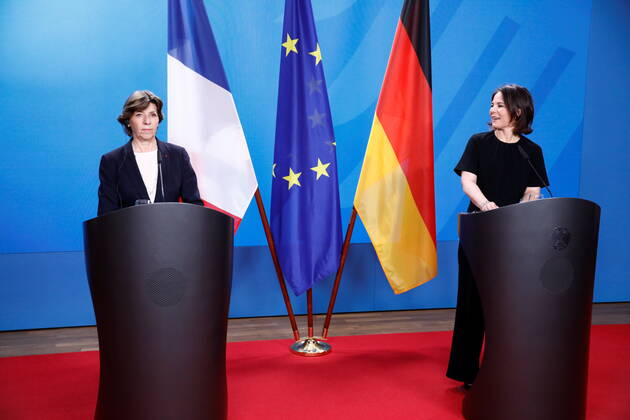Iran’s Move in Neutral Gear Towards a Dead End
In a previous account of the situation Iran found itself in following the peak of public protests and the people’s struggle for their rights, we discussed specific aspects of the potential groundwork for abandoning domestic and foreign policy in a path leading to a dead end. Recent developments in Iran and various reactions in international media, as well as political interactions by Western officials, have created new grounds for potentially accelerating Iranian policymakers’ movement towards a dead end.
The crisis that can still be prevented and managed with wisdom is avoidable. However, it does not seem that there has been any change in the high confidence of the real decision-makers in the successful functioning of their current policies.
Ignoring the Regional, Ethnic, and Class Diversity of Protests and Its Reflection
One of the most significant developments in international policy towards Iran has been the serious and unprecedented attention of media and key influential experts to the geographical and ethnic diversity of the Iranian people’s protests. We now hear the names of Iranian cities in expert analyses that few would have imagined being mentioned in foreign media.
Experts now speak with greater confidence about the differences in this protest era compared to past instances. This diversity should be sought in the geographical, class, and ethnic range and does not necessarily mean the protest of the majority of people and a vast sea of demonstrators. Whatever the extent and range of these protests, they inherently have a diversity that provides a potential basis for linking various protests and grievances together.
Naturally, decision-makers can ignore the importance of this diversity in the emergence of protests. However, it should be noted that at the time when various statistics and narratives for this report were compiled, a protest gathering was formed in front of the Social Security Organization on Mirdamad Street, which is an economic and livelihood protest. This is a simple and small case that potentially has a straightforward expansion.
The phrase ‘tough decisions’ in Iran’s current political and economic conditions has a special meaning. The severe economic situation and reduced oil revenue on one hand, and the squandering of Iran’s oil export capacity in the short term due to Iran being forced to comply with Russia and falling behind this country in the queue of oil sellers, have created serious economic dangers for Iran.
In these circumstances, decision-makers have made several instances of monetary distribution to calm public opinion and found increasing wages and similar examples as a simple solution to address this situation. Such expenditures require revenue grounds.
Changes and flexibility in prices and some increases like the change in gasoline prices in the coming months are a wrong and yet simple solution. How these decision-makers will implement these changes in the coming months and with what security guarantee is a question.
Iran’s Position in International Policy Has Changed
One of the important events in recent weeks has been the highlighting of the unfavorable decision-making situation in Iran and the emphasis of experts and policymakers on the inefficiencies of the decision-making structure of the Islamic Republic system. Painfully, it must be noted that the recent week’s days have successively been scenes of escalating threats from Western officials, and specifically the explicitness of American and European officials about the remoteness of finalizing the agreement on the Vienna deal and signing it.
One of the main reasons for this change is naturally the serious skepticism about the ability and wisdom of Iranian decision-makers among Western officials. In the intensely electoral atmosphere in America these days and weeks, sitting at the negotiation table and recording images and photos of handshakes and reaching agreements will have a severely negative impact on public opinion in various countries.
Iran is now portrayed as an official partner of Russia in the invasion of Ukraine, and as we expected two weeks ago, European officials have finally officially reacted to this issue. The French Foreign Minister issued a formal warning to Iran, accusing it of violating the provisions of Resolution 2231. This specific trend should have sounded the alarm for Iranian decision-makers.
Events of October 19
On Wednesday, October 19, we witnessed the explicit and clear statement of the head of Iran’s system about pride in drone production industries, and on the other hand, the formalization of the Security Council’s investigations into Iran’s partnership in Russia’s invasion of Ukraine. In this context, a closed meeting of this council was held, and after that, the United States also officially joined Britain and France, declaring that Iran is violating Resolution 2231.
In the same conditions, the announcement of new economic and oil cooperation between Iran and Russia was astonishing, and it seems that the official and clear expression of Iran’s policy to help Russia sell more oil, even Russia, which has limited Iran’s oil sales range significantly with its cheap and maximum oil sales program, shows the will and interest of Iranian decision-makers to be sanctioned.
America Does Not Waste Time
Robert Malley’s statements about the future of the JCPOA and the prospect of starting new negotiations or anything similar are the realization of our past predictions. The JCPOA works as a structure to control Iran’s nuclear program. Rafael Grossi, Director-General of the International Atomic Energy Agency, in one of his latest statements about Iran’s nuclear program, expressed concern about our country’s nuclear activities and referred to his inspectors’ reports. It is easy to understand that there is high confidence among most decision-making and supervisory structures about the ability to control Iran’s nuclear program in various ways.
It is with this confidence that Robert Malley has stated that discussing the Vienna agreement and reaching an understanding with Iran is a waste of time. Meanwhile, it is the people who bear the brunt of the sanctions.
Europe Does Not Waste Time on Sanctions
The latest sanction plans and ideas of the European Union against Iran were unveiled by the German Foreign Minister in the last days of October. This is while various statements condemning the behavior of Iran’s system with the people and violations of civil rights are turning into a pragmatic approach and going beyond statement publishing. The narrative that European officials, such as the French Foreign Minister, have provided about targeted sanctions against Iranian officials indicates the identification of the weaknesses of Iranian officials, particularly their financial interests and those of their families.
To this situation, the continued arrest and indeed hostage-taking of citizens with European nationality in Iran should be added, which despite numerous warnings, we have still witnessed new cases in this regard in recent weeks. It should be noted that confrontation and sanctions in this area and similar areas go beyond the joke and amusement that Iranian officials introduce sanctions in their framework. Many managers and middle-ranking officials, with sanctions and the closure of international interaction space, lose the chance to hold high positions and key roles in the field of interaction outside Iran.

Iran is going through turbulent days, and its position in international policy has changed drastically. If Iranian decision-makers believe that they can control civil protests in the short term with various tools, they should consider that the issue of civil rights, especially the discussion of women’s fundamental rights, is not something that can be easily forgotten.
Iran has no means to downplay what is happening domestically and does not possess the lobbying power of Saudi civil rights violators, who wash away the darkness and filth of their record with windfall oil money and lobbying in America.
Beyond that, in the days when Israel has entered the field to counter Iran’s role in the invasion of Ukraine by helping Ukrainians, it should never be assumed that Russia will do anything to defend Iran against potential threats from Israeli actions. The coming week and the summary of the days before the American and Israeli elections are crucial days for Iranian decision-makers. A few appropriate actions and timely decisions with guarantees of national interests and minimal calming of Iranian minds can also be beneficial for the future of these decision-makers.
In this context, other reports and analyses have been published in Iran Gate, which we recommend reading.
- Iran on the Brink of Dead-End Sanctions
- Increased Impact of Sanctions on Tehran
- Disaster at Istanbul Intersection

